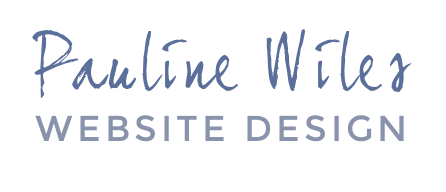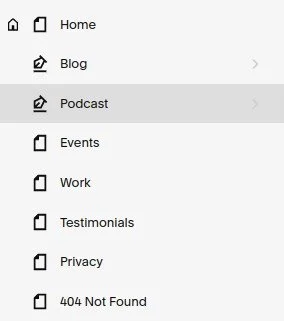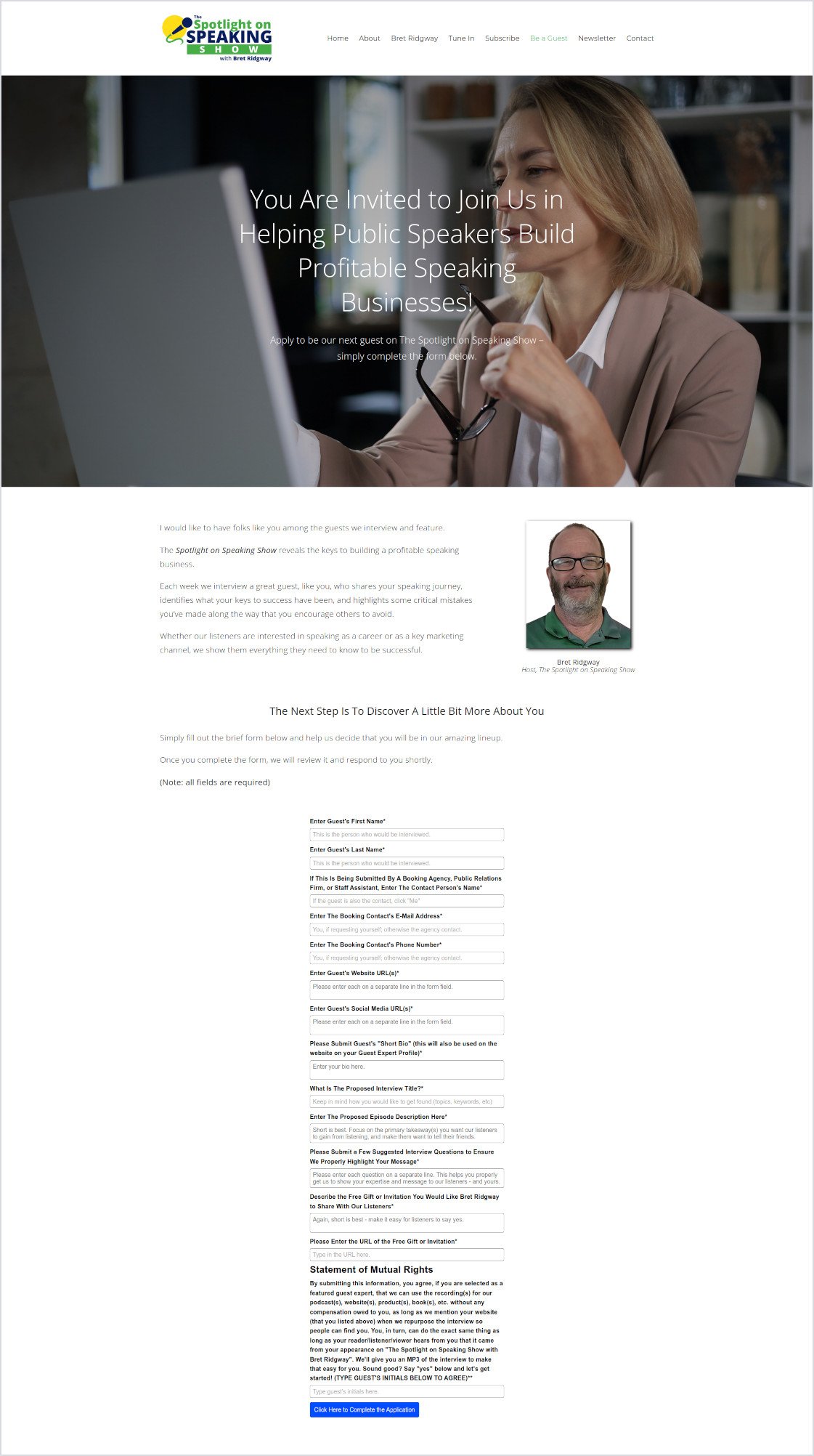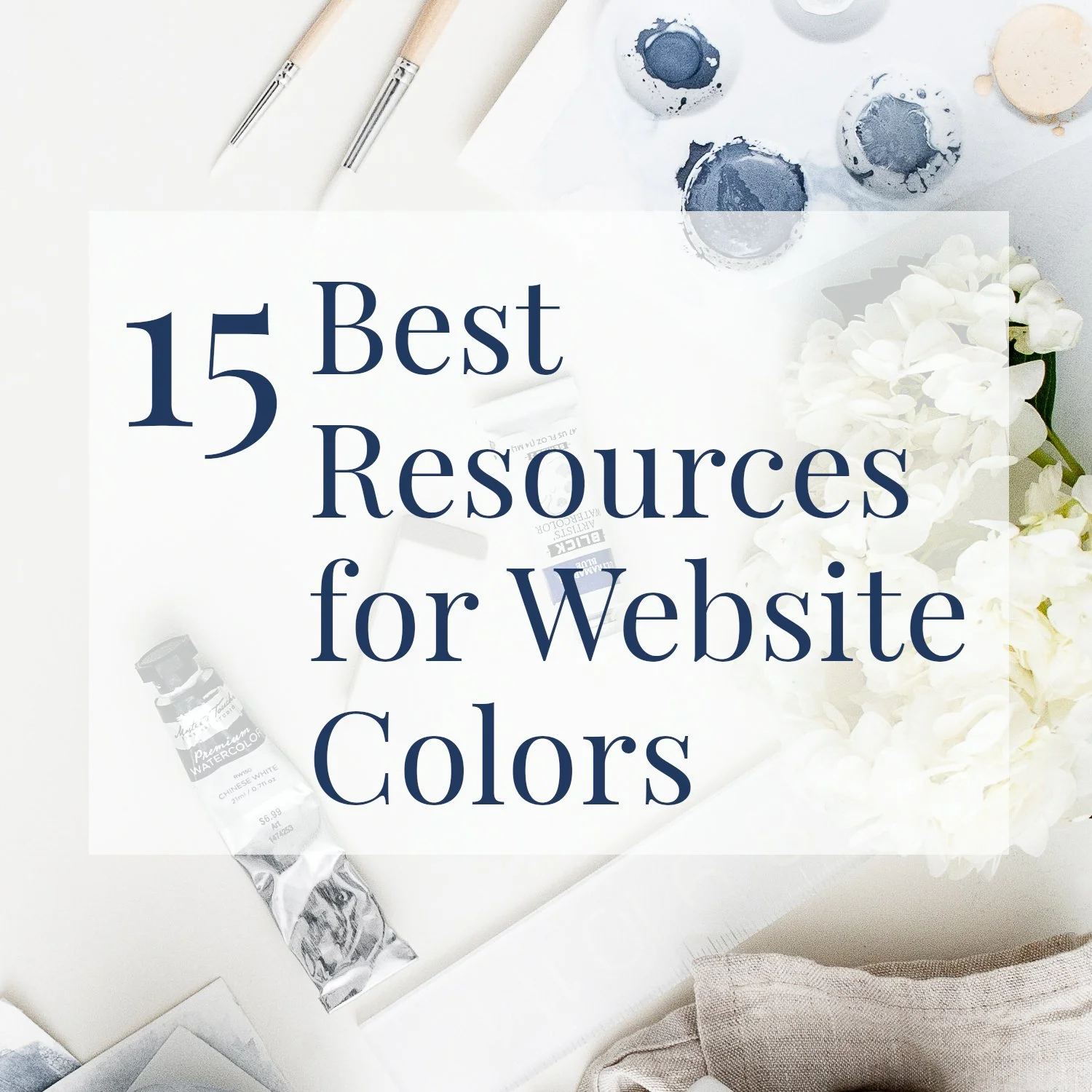8 Ways Your Website Should Support Your Podcast
• This article contains affiliate links •
Even though your podcast hosting service will typically give you a basic “website” inside your podcast account, you might find you have limited ability to customize it. And, just like social media, you don’t own this real estate, so be cautious before you build your house there.
On the other hand, if you create a podcast area as part of your own website, on a domain that you own, there are considerable short-term and long-term business benefits.
Let’s look at some of them.
1. Shorten your sales path by reinforcing your brand and niche
You’ll get better bottom line results if your podcast and website present a coherent picture of your niche, expertise, and whom you serve. This is especially true if you’re selling products or services that are strongly related to the topics you cover on your podcast.
You don’t need to use exactly the same visual branding for your podcast as for the rest of your business, but they should definitely exist as part of a coherent overall brand. That means a website visitor should see that the podcast is related, and vice versa. Practically speaking, if your podcast has a different name and graphic, think about using complementary brand colors, the same font, or a related tagline.
Example: Dr. Cynthia Williams Phelps has a podcast teaser page where her podcast graphic is inspired by, but not the same as, her main branding:
Be sure to put a photo of yourself on your main podcast page. If your show is audio only, some listeners may have no idea what you look like, when they first come to your site. You’ll boost the know, like, and trust factor, and help them feel connected to you.
When you get it right, your ideal podcast listener will visit your website and see immediately that you specialize in the expertise they’re seeking, or problem they’re trying to solve. In other words, when your website and podcast complement each other, it’s a much shorter journey to turn a listener into a paying customer.
2. Give listeners a reason to visit your website by creating episode pages
If you’re going to all the work of offering a podcast, give it its own area on your website. Don’t just link to your account on your podcast host.
Typically, you’ll make a website page for your main podcast overview, then use the blog feature of your website tool for episode pages. For example, Squarespace allows you to create more than one blog inside a single website, so you might choose to separate your podcast content from written blog articles.
Save 10% off your first year subscription to a Squarespace website by using the code PAULINE10.
On another platform, you might need to combine podcast episodes with other blog content, but you can add categories to make navigation easy.
With a central podcast page on your own website, you can give guests a link to share so you drive traffic directly to your site, not another platform. And you’ll mention the show notes in each episode, of course.
For your podcast episodes, use (podcast) categories to help organize them and make it easy for a listener to find other content they’ll love.
3. Encourage them to spend longer: link from show notes to useful resources
When you publish your episode show notes on your website, your main goal is to be helpful to the human who visits that page looking for information.
And your show notes are a great place to provide additional links where there’s a win for both you and your site visitor, for example:
A related blog post, where they’ll learn more about you and your work
Recommended products or tools, where you might earn affiliate income
First steps in how to work with you
Should you try to optimize your podcast show notes for SEO?
Not necessarily. If it’s natural for keywords to appear in your show notes, then that’s good. Otherwise, in terms of search engine ranking, you don’t have to fill your show notes with keywords to try to attract Google’s robots. The backlink from your guest to the episode page is a great way to boost the “page authority” ranking of that individual page. And if you’ve linked from that page to other relevant content on your own site, your whole “domain authority” will rise too.
But you’ll likely do better by optimizing other written content, like blog articles, for keywords.
More on this topic from Love At First Search: how to optimize your show notes.
Deepen the connection with a way to contact you
However you prefer to gather feedback, questions, and suggestions from your podcast audience, make sure there’s a method on your website to get them involved. You might offer an email address or contact form. Either way, these methods can increase listener engagement and reviews.
4. Convert podcast listeners to email subscribers
It’s wonderful to have a loyal audience of podcast listeners. Even better is when these people join your email list, too.
To encourage this, make one or more lead magnets that go deeper into the topic(s) you address on your podcast. Set them up on website pages with easy-to-say URLs, for example your-website.com/checklist or your-website.com/guide
Mention your freebie(s) frequently during your podcast episodes, so that you remind people they can get additional information from your website.
Pay attention to your analytics to see which lead magnets are getting more downloads. Consider also, is this because you mentioned it more often, was it featured in an episode that a guest shared with their large audience, or is it simply a topic where people are eager to receive additional information?
Example: Anna David (On Good Authority podcast) offers both free resources and a $20 Book Launch Blueprint download on her episode pages, like this one.
5. Test course topics to see what people would pay for
Thinking of monetizing your knowledge by creating an online course? You now have some great data on topics that are likely to succeed with your audience. Use your website and podcast stats together to analyze:
Episode listener statistics: what are the topics where listener numbers jump?
Your popular lead magnets: if people are willing to give you an email address to access this material, that indicates strong interest
Page views for other articles you’ve written: see if you can spot clusters of topics that do well
In recent years, there’s been a rush by content providers to create paid courses. If you don’t yet have a course, remember, you can start small. To test the water, you might try a paid newsletter, a private podcast feed, a Patreon community, or you can sell low-cost digital resources from your website.
Example: Matty Dalrymple, of The Indy Author Podcast, offers these Patreon membership levels:
6. Save time and collaborate by streamlining guest communications
Your policy for guest pitches
If you are open to being pitched by potential guests, put a page on your website explaining your requirements and how they should get in touch with you. Even better, add a form here that gathers all the information you want, when someone pitches you.
Example: Bret Ridgway’s Spotlight on Speaking podcast has a comprehensive guest application form.
Show your professionalism to guests
Whether your podcast is new or more established, there will be times when you want to pitch a particular guest, to appear on your podcast.
Create a website page with speaker information and link it to a scheduler where they can book their interview time.
Not only does this save you time in back-and-forth logistics, but it makes you look much more professional. When you have your act together, it makes it more likely a guest will say yes.
This page doesn’t have to be featured in your website menus; just send a direct link to the people you invite. Or, when someone pitches you and you agree to have them on your show, send this link as the next step.
Make sure the page includes necessary recording logistics, any standard questions they’ll need to prepare, and a link to your show assets and swipe copy, so they can share with their audience easily.
7. Get booked on other people’s podcasts
As a podcast host, it’s natural that some of your guests will invite you to be on their shows too. This will likely lead to others checking you out for possible speaking opportunities, including guest expert slots and online summits. Make it easy for them by creating a media page to highlight not only your own podcast, but other places you’ve been featured.
Include your speaking topics, bio, testimonials if you have them, and your Speaker One Sheet. This is a one- or two-page PDF file that summarizes your speaker information, and is essential to professional event planners, when they’re vetting speakers.
If you don’t yet have a Speaker One Sheet, download my free Canva templates to make your own quickly and easily:
8. Land brand sponsorships more easily
Similarly, if you’re working with sponsors for your podcast, you should create a sponsorship page with the information they will want to see, including:
Your audience demographics
Listening stats (downloads, unique listeners, and listener behavior if you have it)
Options for how to work with you
Brief case studies of results from other partnerships
Again, this saves your time, saves email back-and-forth and significantly boosts your professionalism. Even better, it saves time for the person at the sponsor organization who is researching which podcasts to work with.
And it makes it much easier for one brand partner to recommend you to another.
More on why your (sponsorship) media kit should be easily available on your website, from Creator Wizard.
•
Would you like me to incorporate podcast pages in your new Squarespace website?
I specialize in website design for speakers and authors, including those who host podcasts. If it’s time for a new website — and you’re interested in using Squarespace as your platform — I can help. We’ll include not just the essentials for your podcast, but the rest of your business activities, too.
If you’d like technical expertise, strategic marketing advice, and all of the implementation taken care of, consider hiring me.
After careful preparation together, I’ll design, build and launch your site in usually just 2-3 weeks. Learn more, and then schedule our free and friendly chat.














